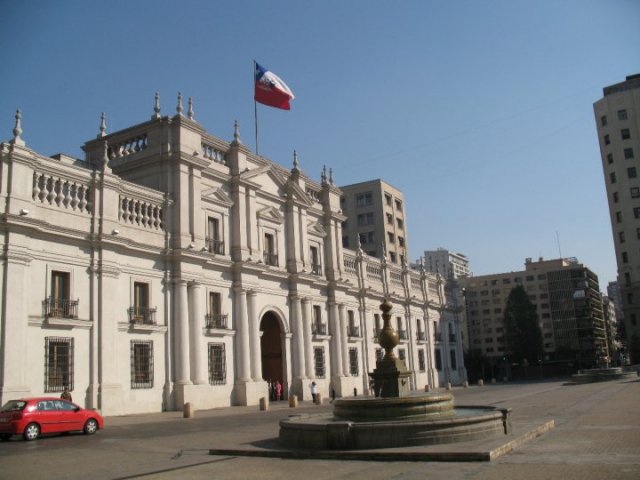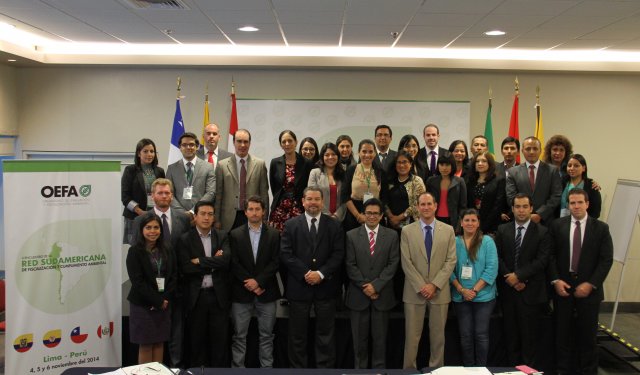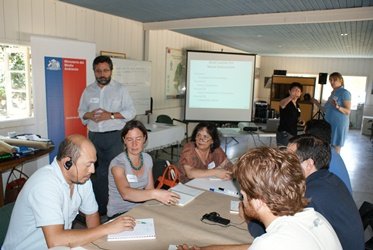EPA Collaboration with Chile

Explore our work with Chile:
Past Activities
Environmental Governance
- Development of curricula for judges on adjudicating environmental enforcement cases.
- Training on inspection and enforcement for the Environment Superintendency (Superintendencia del Medioambiente- SMA) inspectors.
- Technical consultation and assistance on a variety of environmental enforcement issues as requested.
- Training and launch of NEPAssist, a tool that facilitates the environmental review process and project planning in relation to environmental considerations. NEPAssist was deployed in Chile in March 2014.
- Under Chile’s leadership, EPA supported the creation of the South American Environmental Enforcement Network (REDSUFICA) -- now Latin American Environmental Enforcement Network (REDLAFICA) -- bringing together enforcement officials from Central and South America and the Caribbean to strengthen enforcement and compliance with environmental laws.
- Workshop on environmental emergency response, focused on the development of a response protocol for environmental emergencies, which resulted in a best practices guide for environmental emergency management.

This work has produced the following selected results:
- As a result of EPA cooperation with Chile’s Environment Superintendency (SMA), trainers previously taught by EPA have now trained 520 inspectors across Chile.
- SMA has also adopted a total of 7 new policies/protocols to enhance environmental protection in the following areas:
- Inspections of liquid wastes;
- Inspection procedures at thermoelectric plants;
- Protocols for the use of Continuous Air Emissions Monitoring;
- General enforcement procedures;
- Penalty calculation methodology;
- Inspection planning procedures; and
- Policy on coordination with other sector ministries during inspections.
Air Quality
In January 2017, EPA and the Chilean Ministry of Environment launched the Megacities Partnership for the Santiago Metropolitan Region, within the framework of the United States-Chile Environmental Cooperation Agreement. The partnership was designed to help improve air quality, protect the climate and provide important public health benefits. The program culminated with a regional air quality management workshop held September 3-7, 2018 in Santiago.
Learn more about the Santiago Megacities Partnership.
Mining
- Management of environmental aspects of mine closure
- Abandoned mine risk evaluation
- Remediation of contaminated mining sites
This work has produced the following selected results:
- Participants from a variety of Chilean government entities were trained on financial assurance mechanisms in mining.
- Representatives from over 10 Chilean entities participated in an environmental risk assessment in mining seminar in Santiago, Chile.
- Representatives from 15 Chilean entities were trained on regulatory structure, characterization, risk assessments, mapping, selection of remedial options and enforcement measures at mining sites.
Public Participation
- Over 60 Chilean representatives were trained in involving the public in environmental decision making.
- 28,000 public guides for access to environmental information were developed and disseminated.
- EPA's Public Participation Guide was translated into Spanish.
Environmental Education

Agreements and Relevant Documents
- U.S.-Chile FTA
- Environmental Cooperation Agreement (PDF) (4 pp, 40 K, About PDF)
- 2015-2017 United States - Chile Work Program for Environmental Cooperation
Key Partners
The following links exit the site
- US Department of State
- Chile Ministry of Foreign Relations
- Chile Ministry of Environment
- Chile Ministry of Mining
- Chile Superintendencia del Medioambiente
